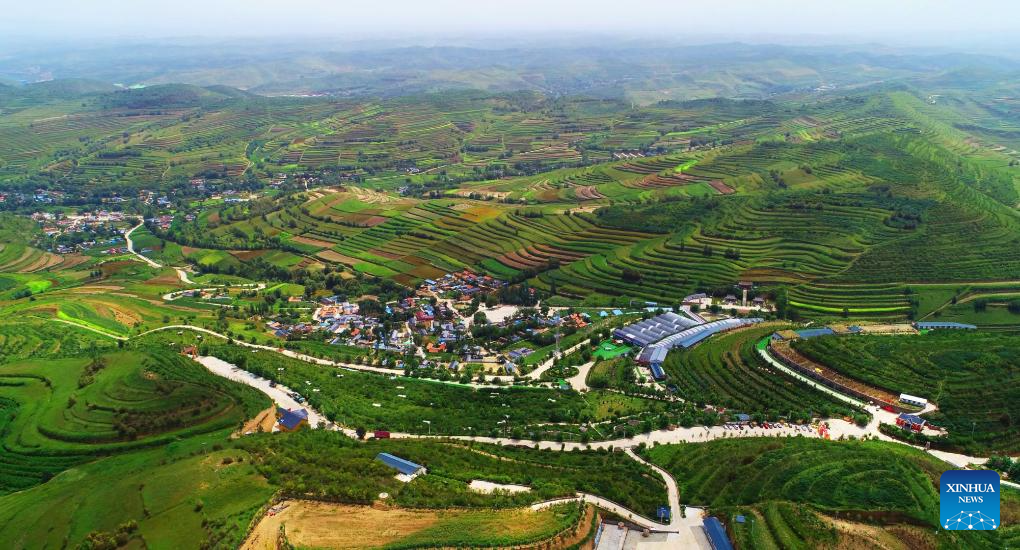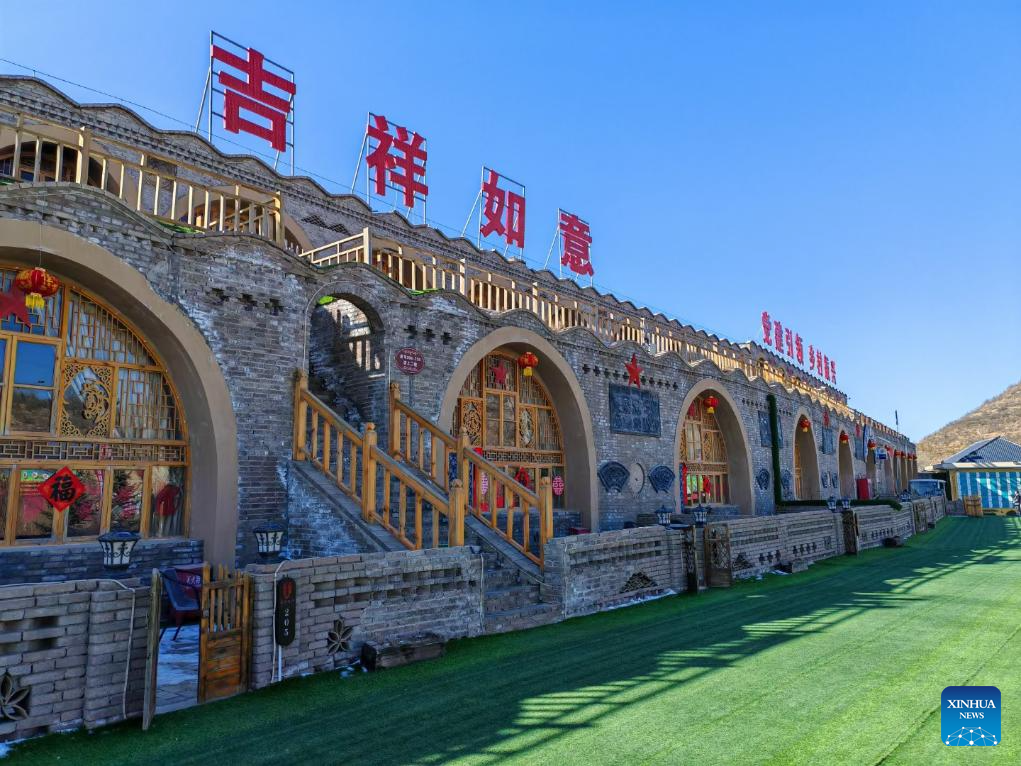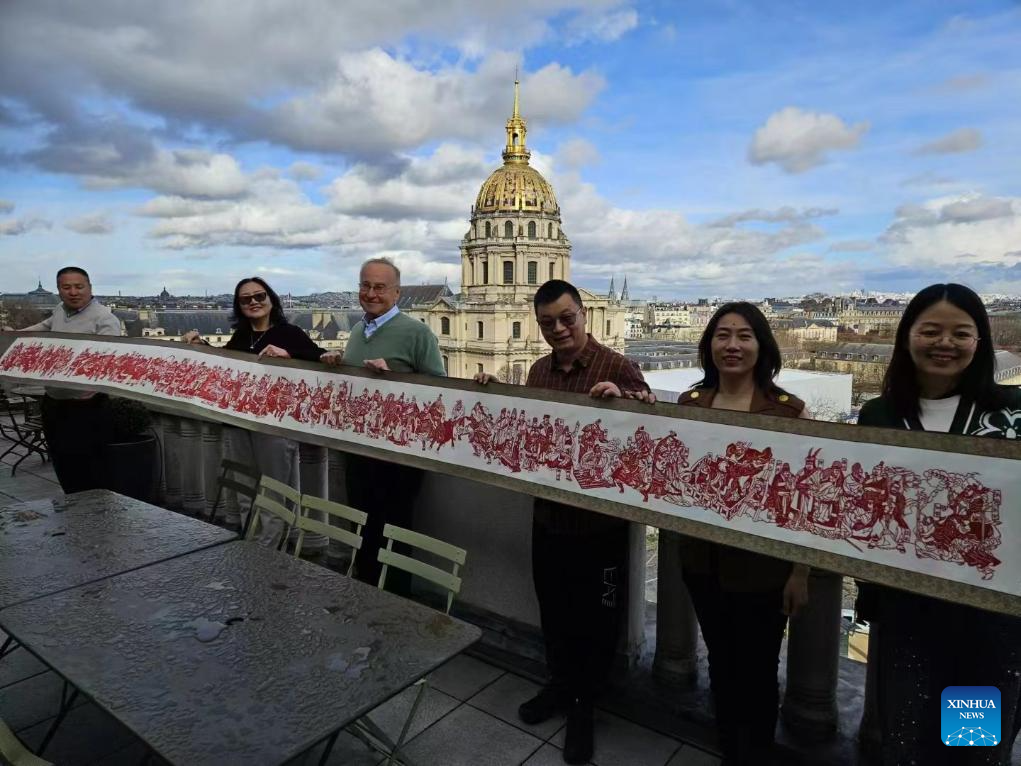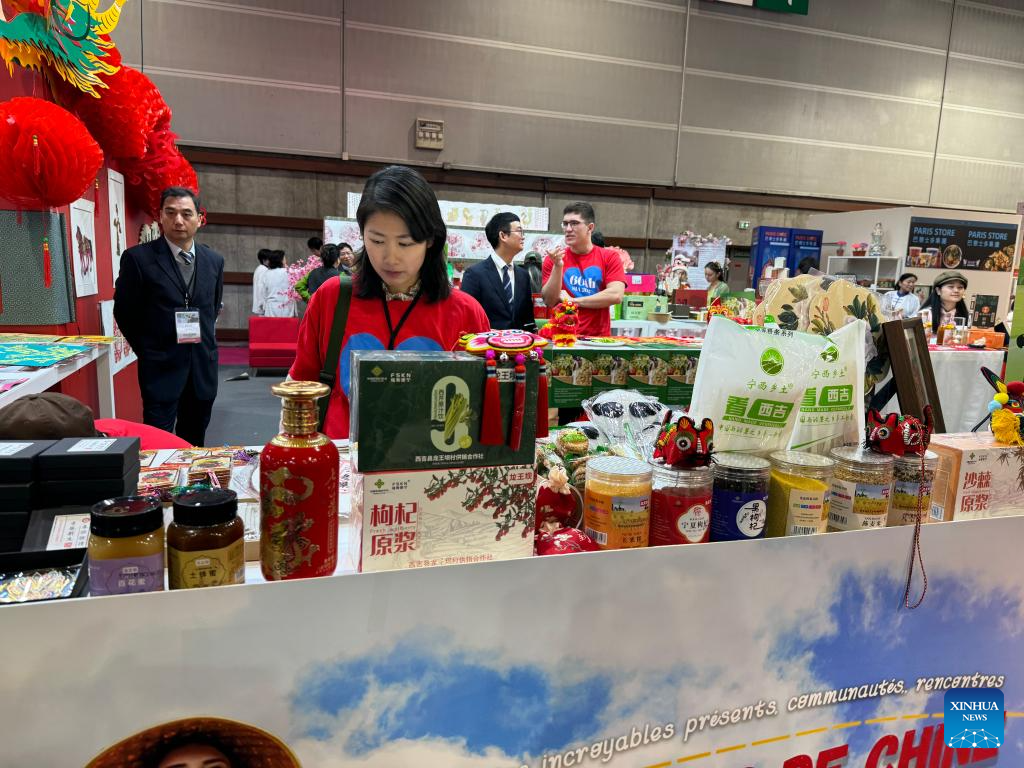Across China: Once-impoverished China village shares with world story of green shift

A drone photo taken in July of 2021 shows the Longwangba Village in Xiji County, northwest China's Ningxia Hui Autonomous Region. (Xinhua)
YINCHUAN, March 12 (Xinhua) -- A village in Xihaigu, an area in northwest China once declared "uninhabitable" by the United Nations, has attracted international acclaim because of its green transformation.
A representative of Longwangba Village in Guyuan City in Ningxia Hui Autonomous Region, northwest China, recently shared his recipe for success at the 60th International Agriculture Fair in Paris.
"I was happy to share the story of rural revitalization in our village and ecological achievement in China with the French people and the world," said Jiao Jianpeng, deputy Party chief of Longwangba.
Jiao brought local agricultural specialties to the exhibition, including wolfberries, millet, and parsley juice, as well as intangible cultural heritage products such as paper-cutting, shadow puppets, and facial makeup.
Parsley juice might not sound too appealing, but it found a fan in Daniel VIAL, who was awarded the Chevalier de la Légion d'Honneur by a former French president. When VIAL visited Jiao's booth, he tried the juice, gave it a thumb-up and said "Fantastic taste!"
The exhibits were popular among visitors to the fair, with total sales surpassing 400,000 yuan (about 56,367 U.S. dollars) in just a few days. Back in China, Jiao is still receiving purchase inquiries from French customers.
Not so long ago, Xihaigu, where Longwangba is located, was one of China's most impoverished areas, with over 80 percent of people living under the poverty line during the early stage of reform and opening up.
In the water-starved Xihaigu area, the per capita water resources accounted for less than 8 percent of the national average level. It was declared as "uninhabitable" by UN experts in 1972.
The harsh natural conditions made surviving and thriving extremely difficult. But the ecological environment in Xihaigu has gradually improved because of a series of ecological protection initiatives, such as the Three-North Shelterbelt Forest Program. In Guyuan, the forest coverage rate has increased from 1.4 percent in the late 1970s to 27.28 percent in 2022.
China's poverty alleviation efforts have also improved infrastructure in Longwangba, including roads, electricity, housing and access to clean water.
Based on the mountainous terrain, villagers have built terraced vegetable fields and oil peony farms. They have also constructed science and technology museums as well as traditional cave-dwelling hotels with local characteristics.
In 2023, Longwangba received more than 410,000 tourists, with a tourist revenue of 19.41 million yuan. Through diversified development modes such as tourism and health and wellness, the villagers' annual per capita disposable income has grown from less than 2,300 yuan in 2012 to 15,500 yuan in 2023.
From "uninhabitable" to "green, ecological and high-quality development," Longwangba has become an epitome of China's progress in poverty alleviation and rural revitalization.
Longwangba's story has been documented in "Carnets de Chine," which means "Wonderful Journey in China," a documentary jointly produced by Chinese and French media. It will be aired on leading French media France TV and TV5 Monde.
As the host of this documentary, French music blogger Alice Roche visited Longwangba village in June last year and experienced the local culture and learned the folk song "Flower."
"The agricultural technology such as greenhouse cultivation is excellent. The tourism industry driven by cave-dwelling hotels is developing very well," said Roche. "Local people work so hard to develop their hometown and never give up. It is really touching and admirable."
Roche has now become one of the 88 "honorary villagers" of Longwangba, who come from various parts of the world and have contributed to the development of the village as well as its exchanges with the world.
"We aspire to present to the world not only the beautiful countryside of China, but also a commitment to resilience, innovation, openness and inclusiveness," said Jiao.

This photo taken in July of 2023 shows a cave-dwelling hotel at the Longwangba Village in Xiji County, northwest China's Ningxia Hui Autonomous Region. (Xinhua)

Jiao Jianpeng (1st L) displays a paper-cutting artwork by villagers in Longwangba Village, a village in northwest China, at the home of Daniel VIAL in Paris, France, Feb. 23, 2024. (Xinhua)

This photo taken in February of 2024 shows agricultural specialties and intangible cultural heritage products from Longwangba Village, a village in northwest China, displayed during the 60th International Agriculture Fair in Paris, France. (Xinhua)
- GLOBALink | Foreigners experience Spring Festival customs in China's Ningxia
- Interview: China's Ningxia offers "roadmap to success" in desertification control, green growth, says World Bank official
- Economic Watch: Global firms capitalize on China's smart, green transformation
- Cameroonian man explores, decodes keys to rural revitalization in China
- French winemaker pursues world-class wine in NW China


